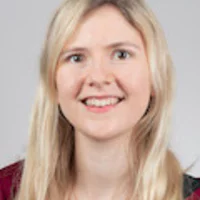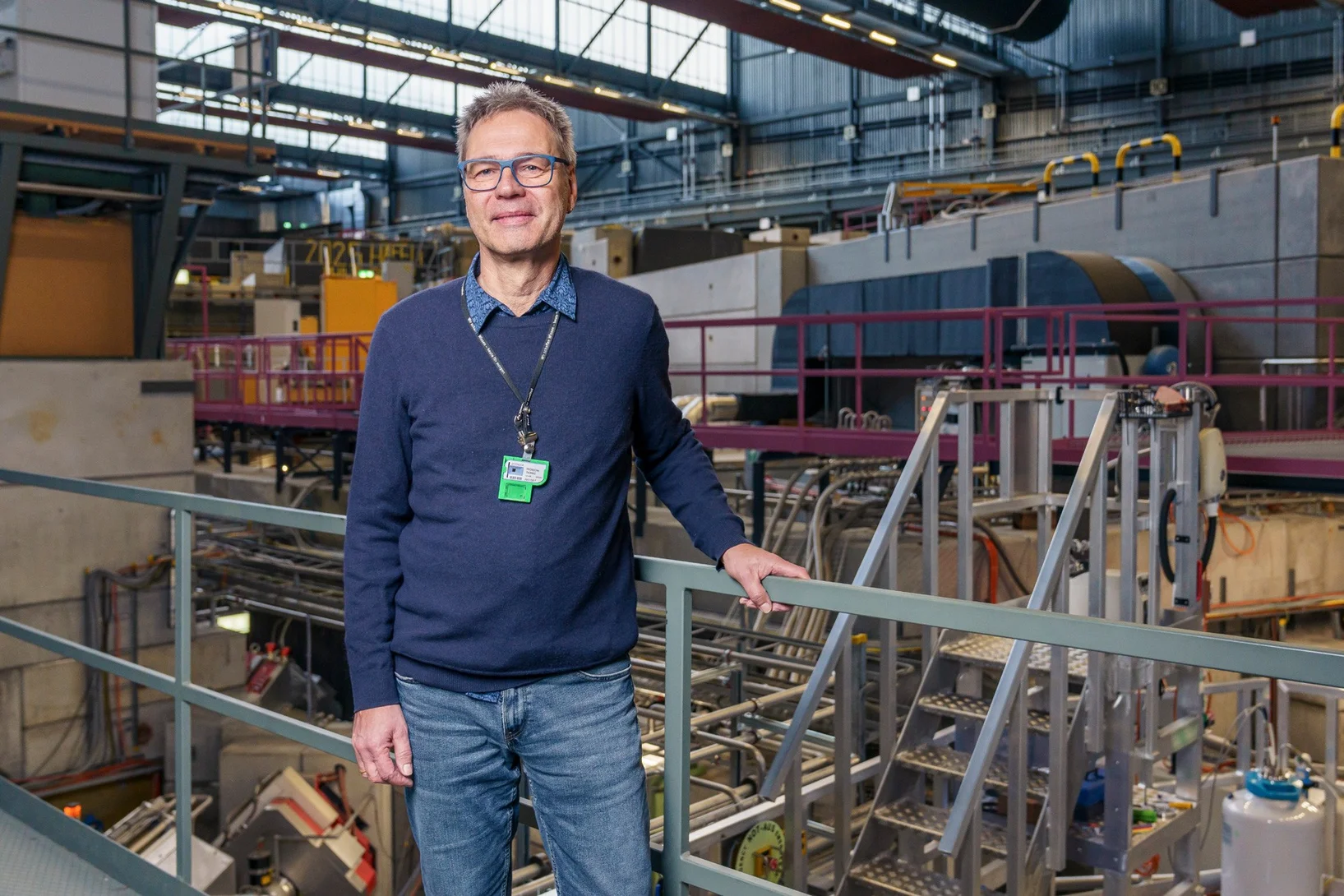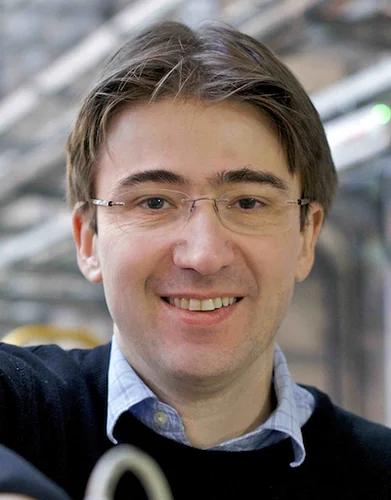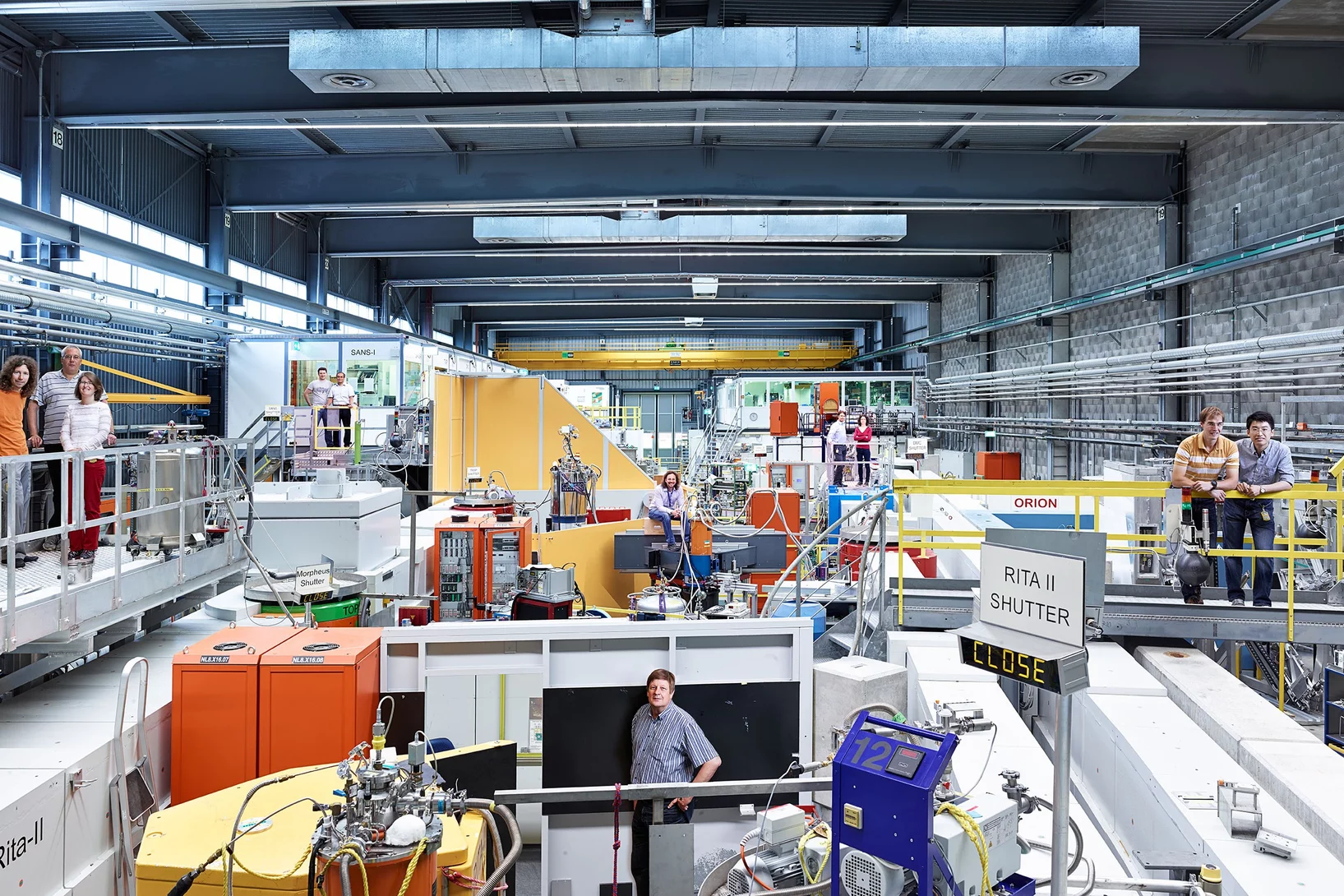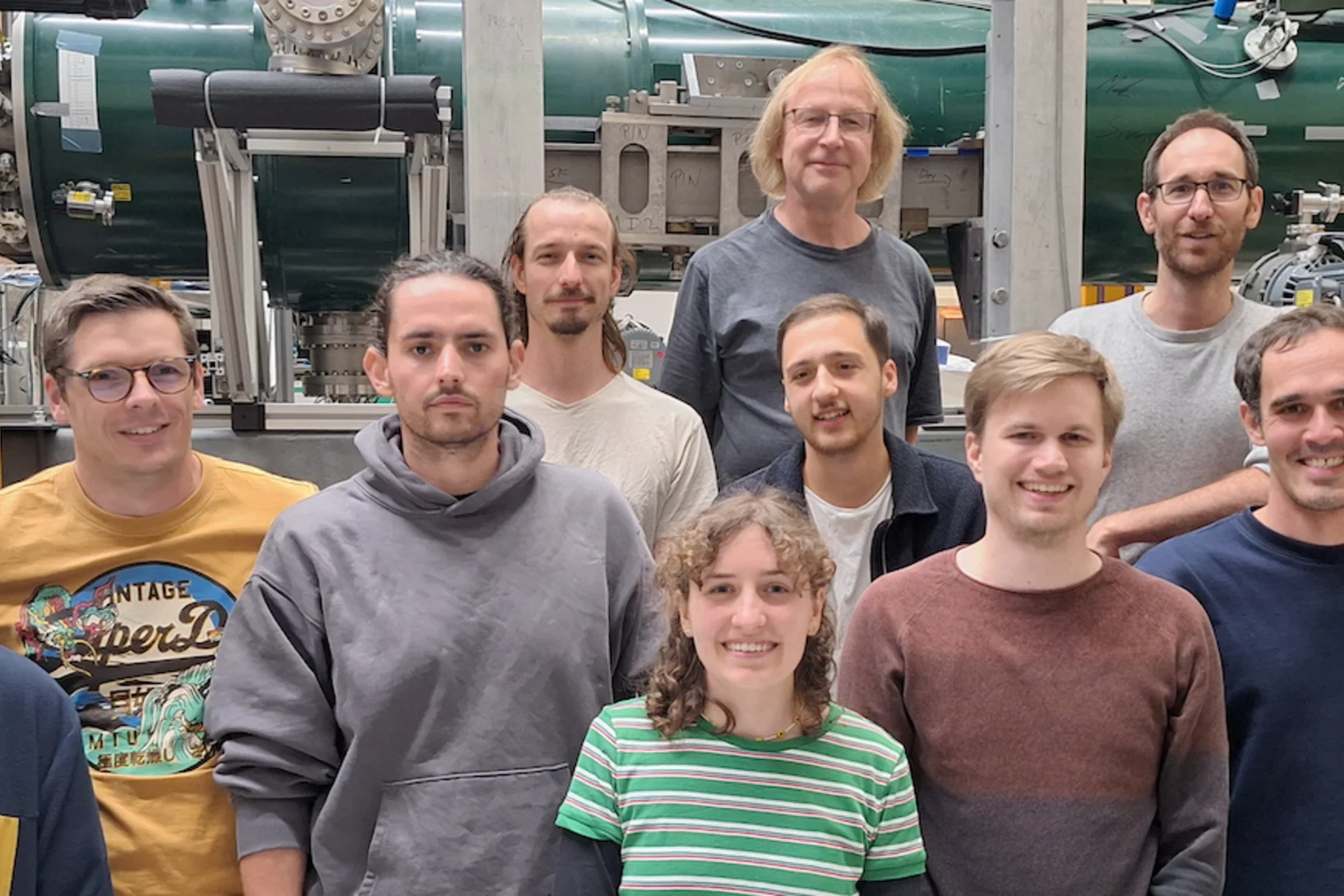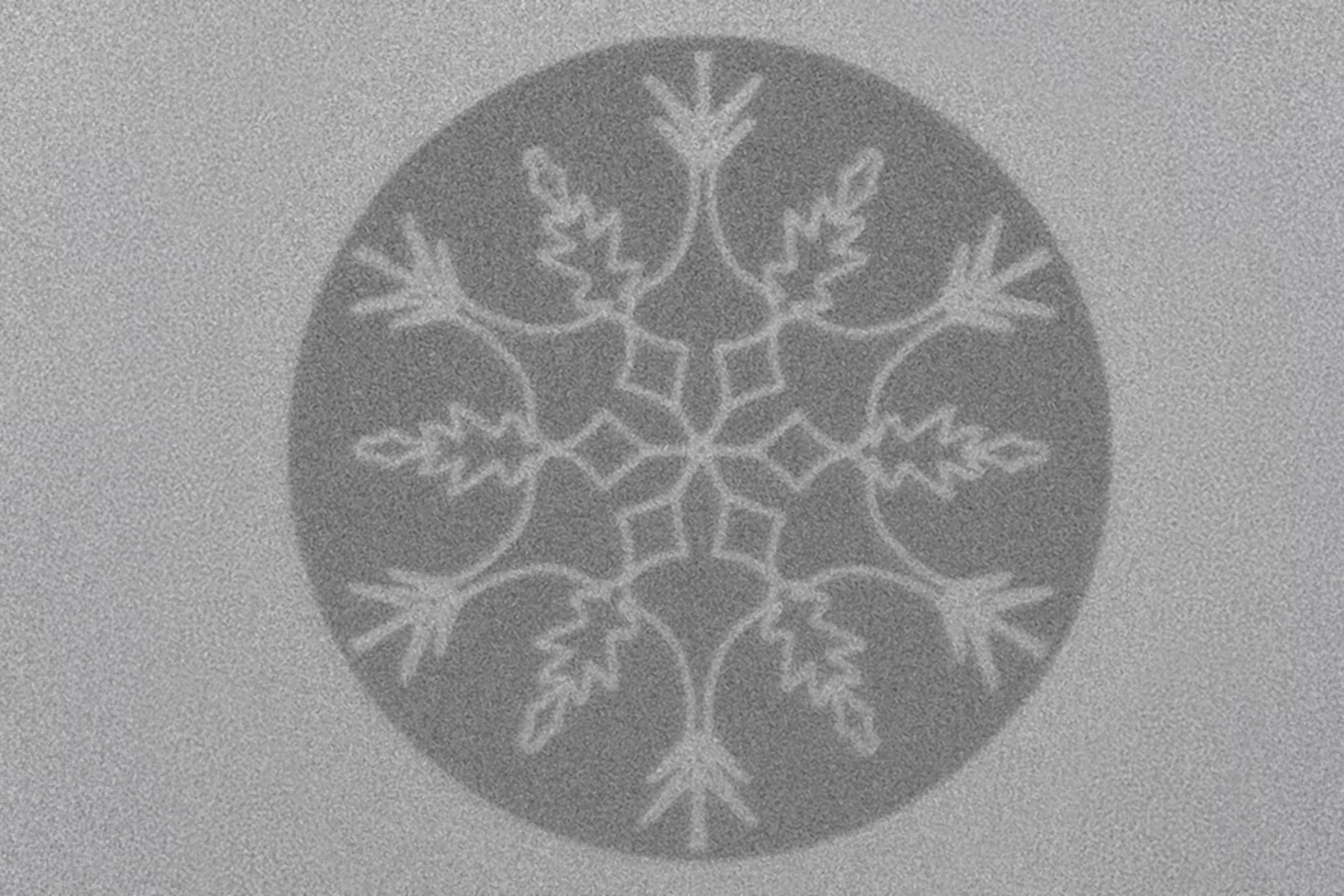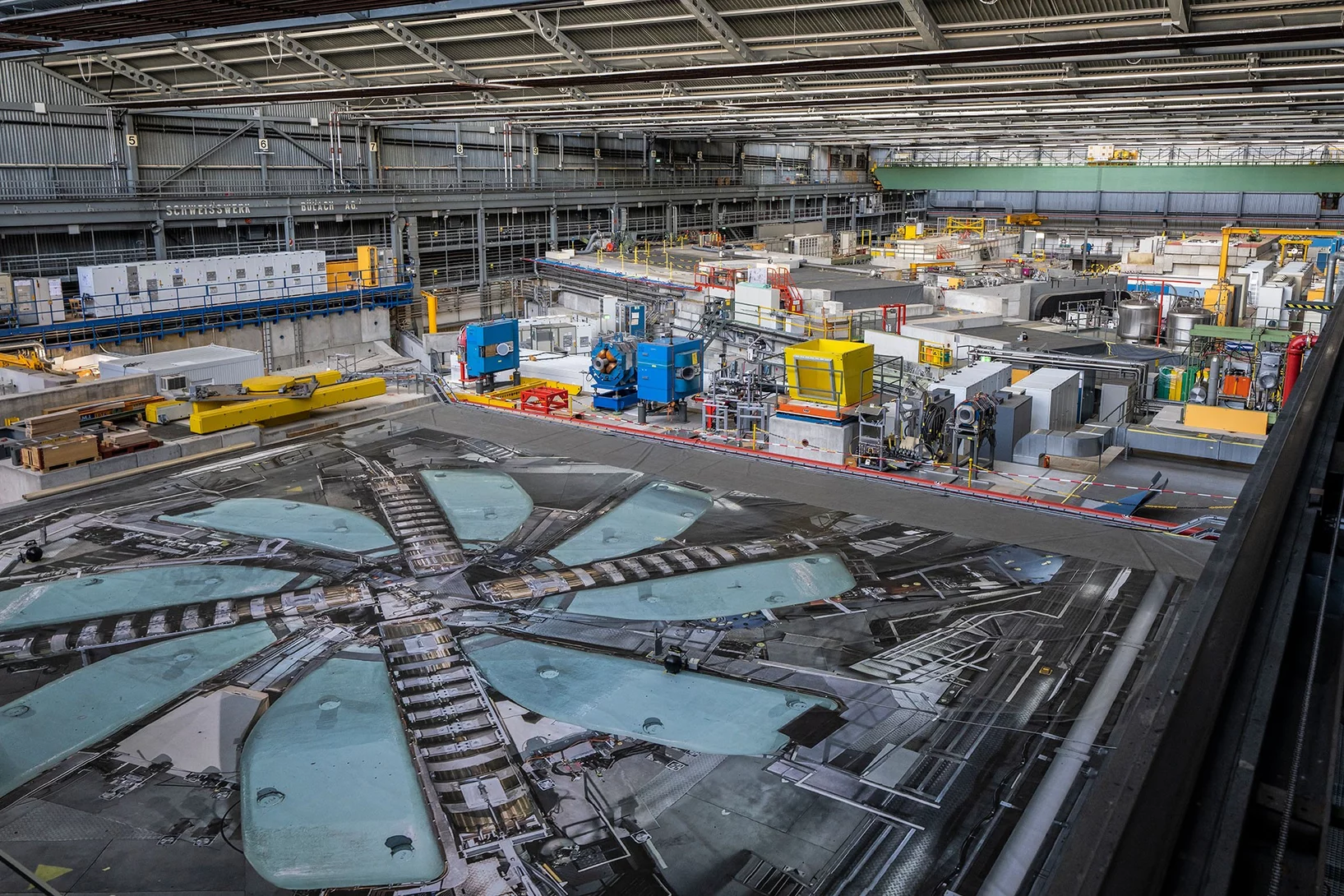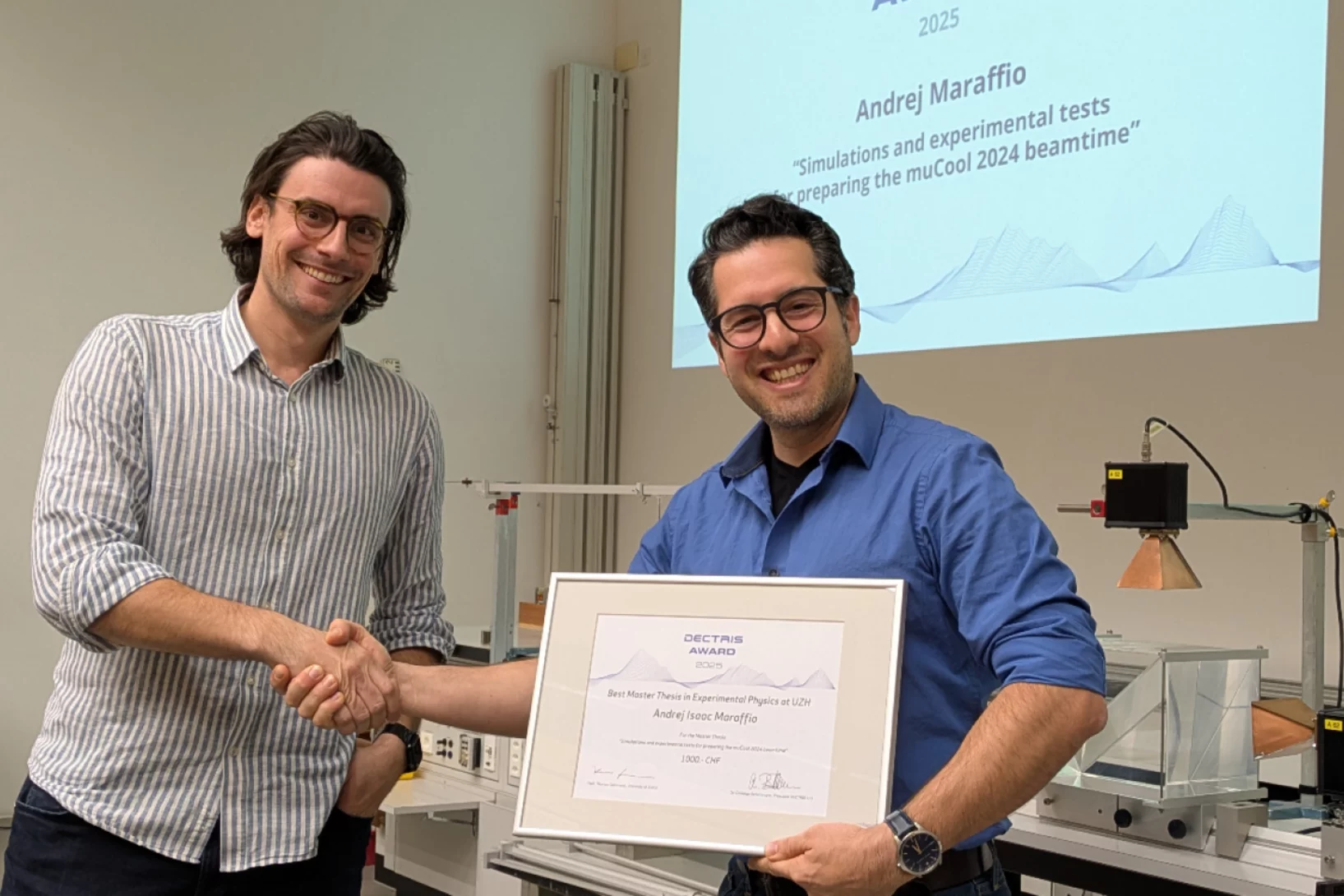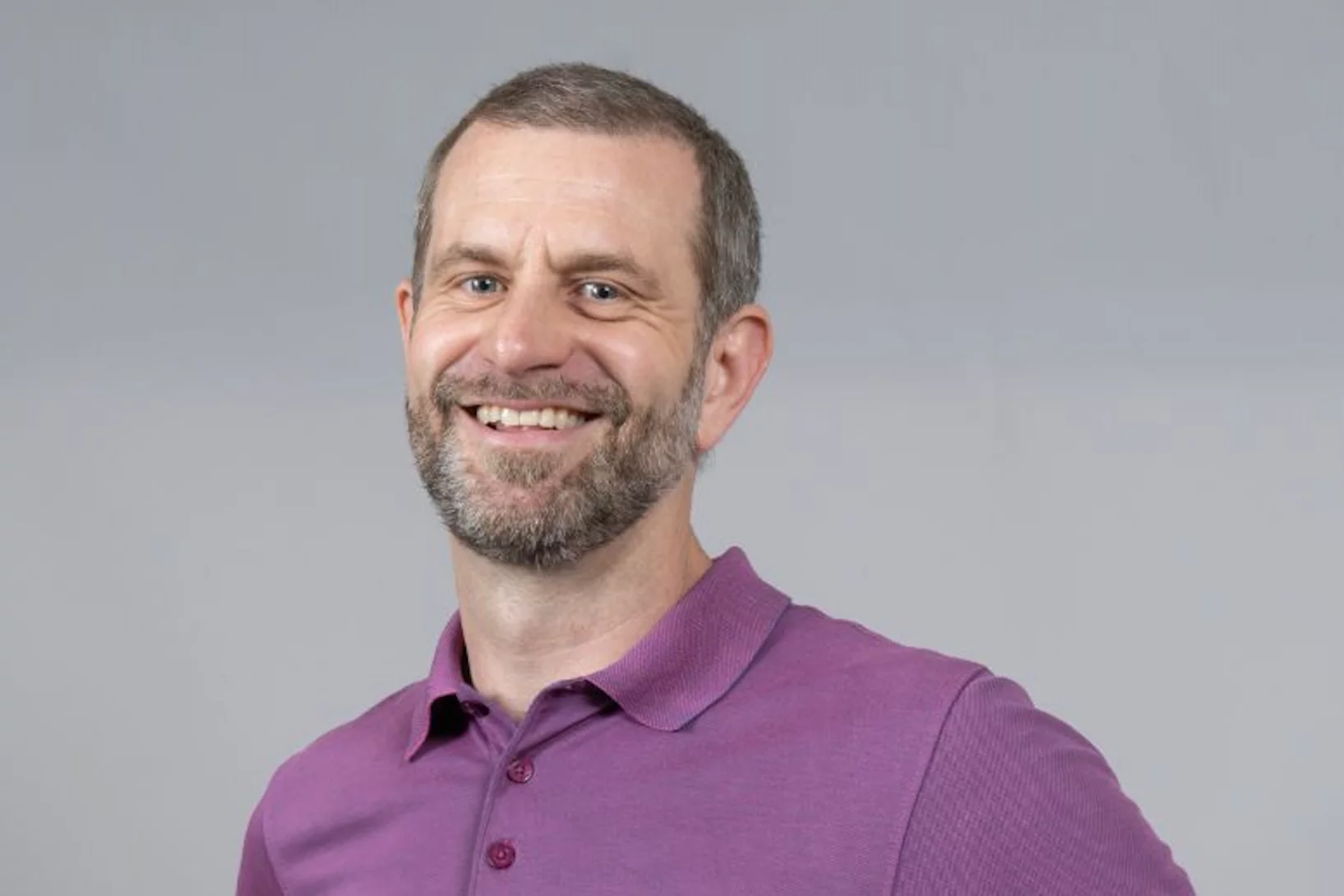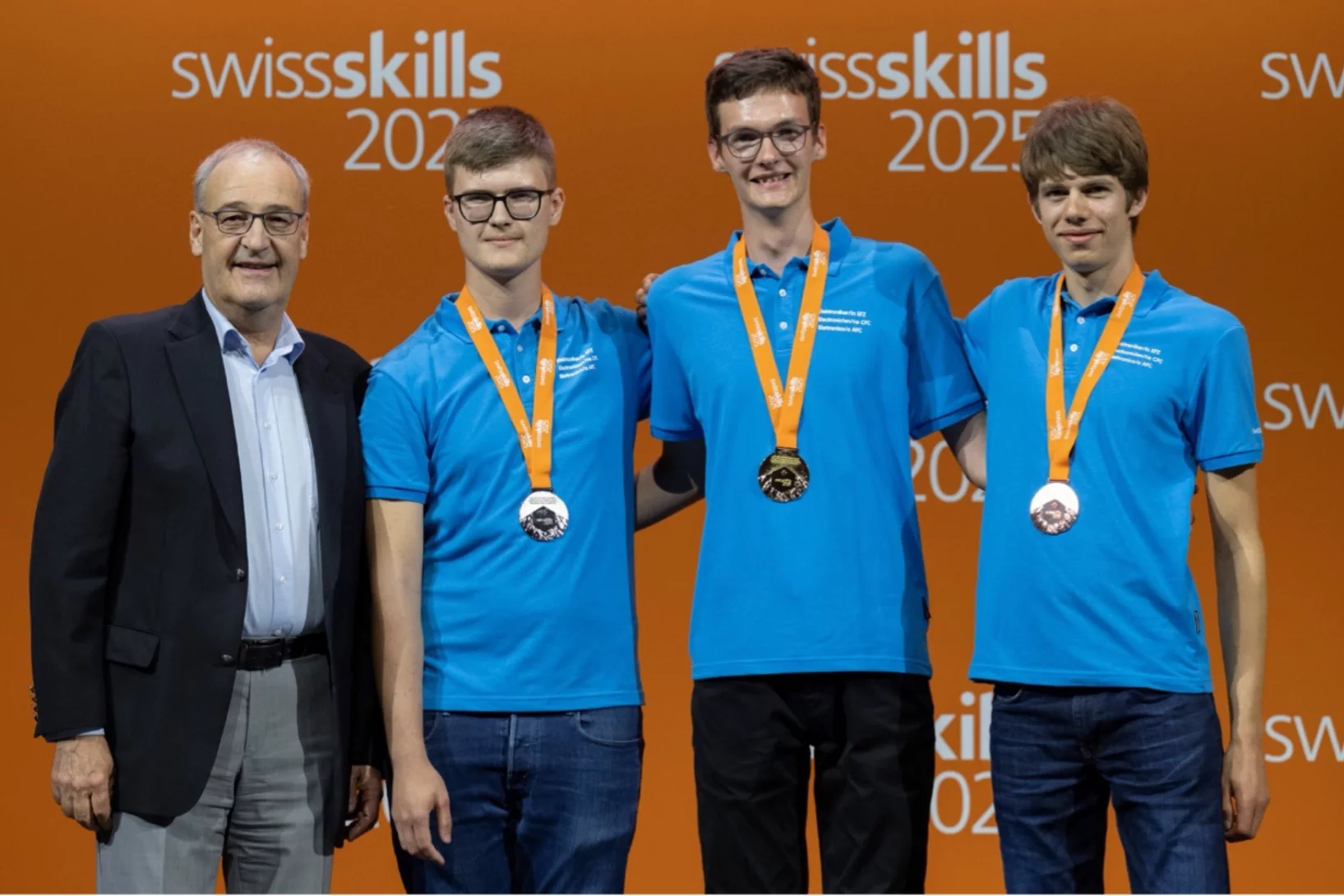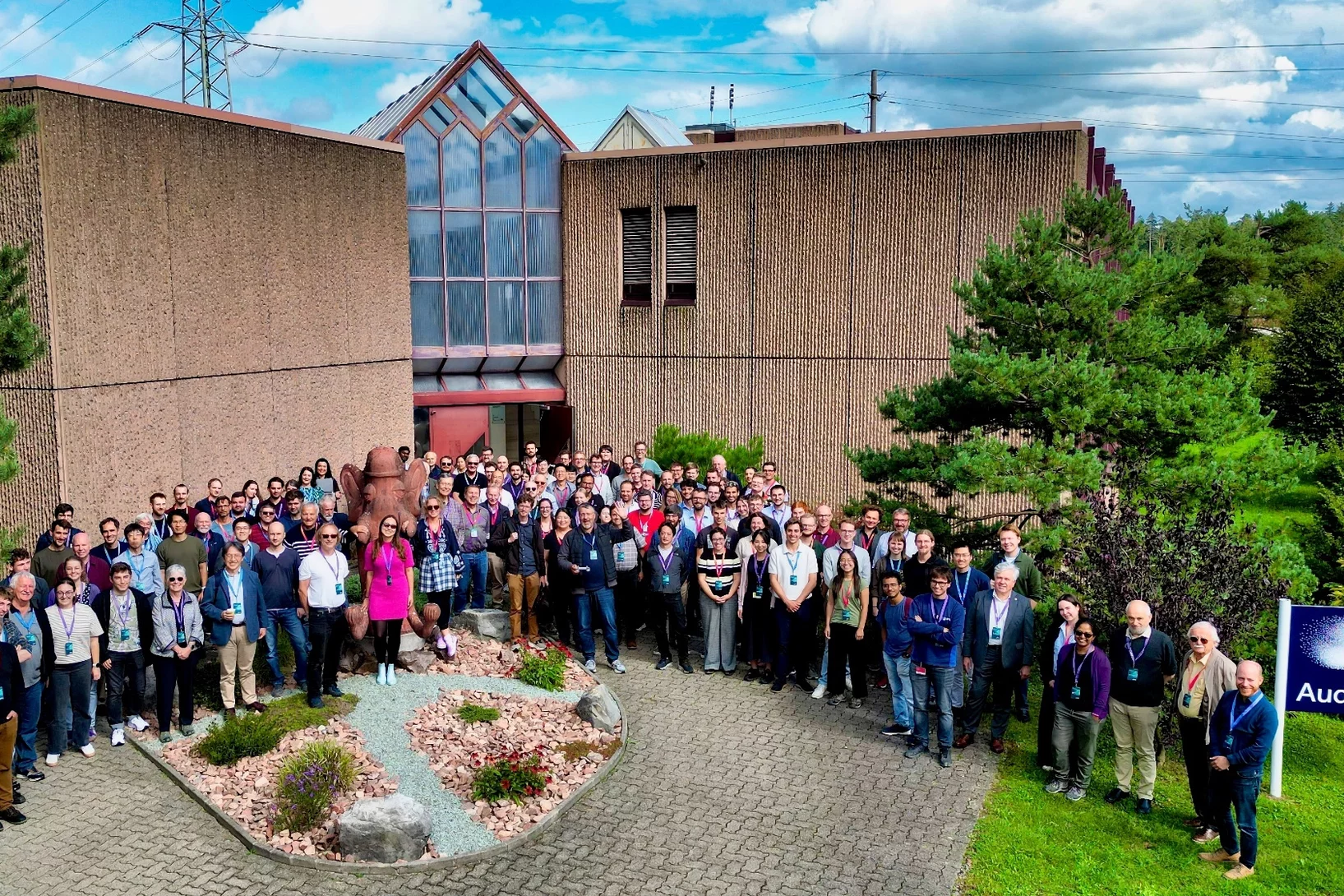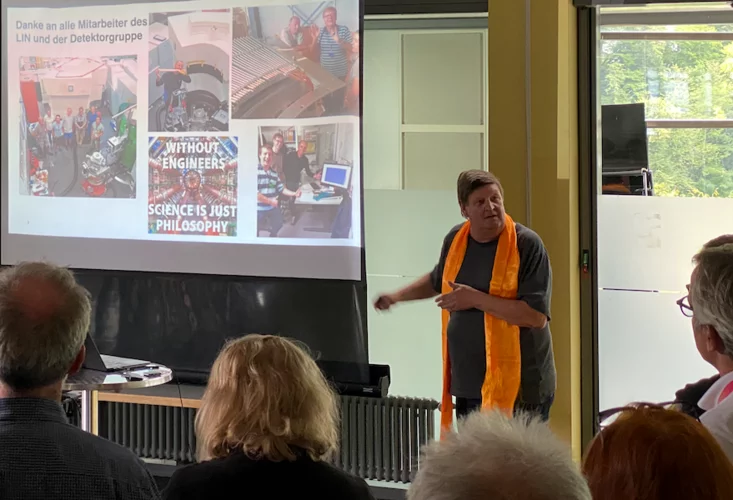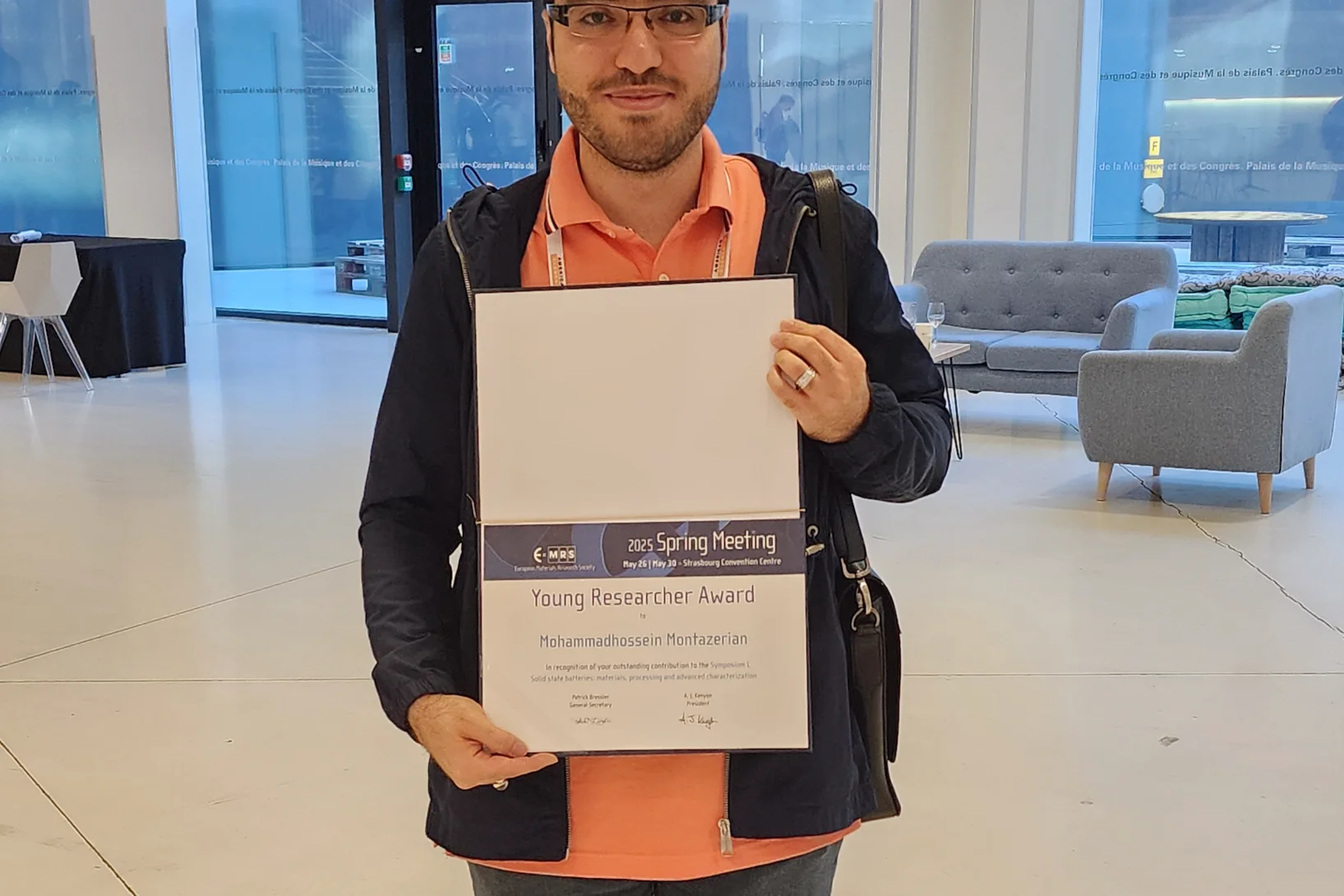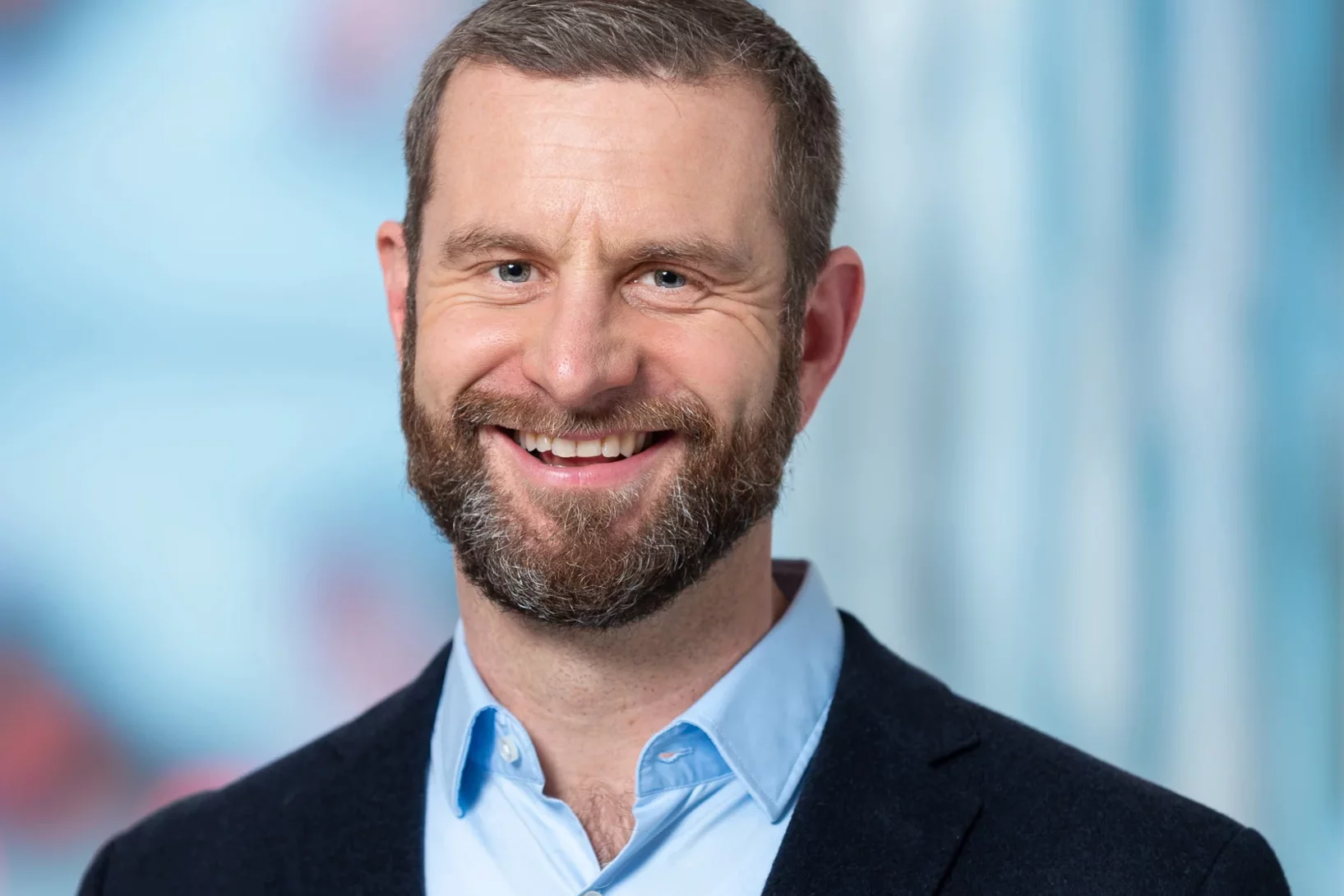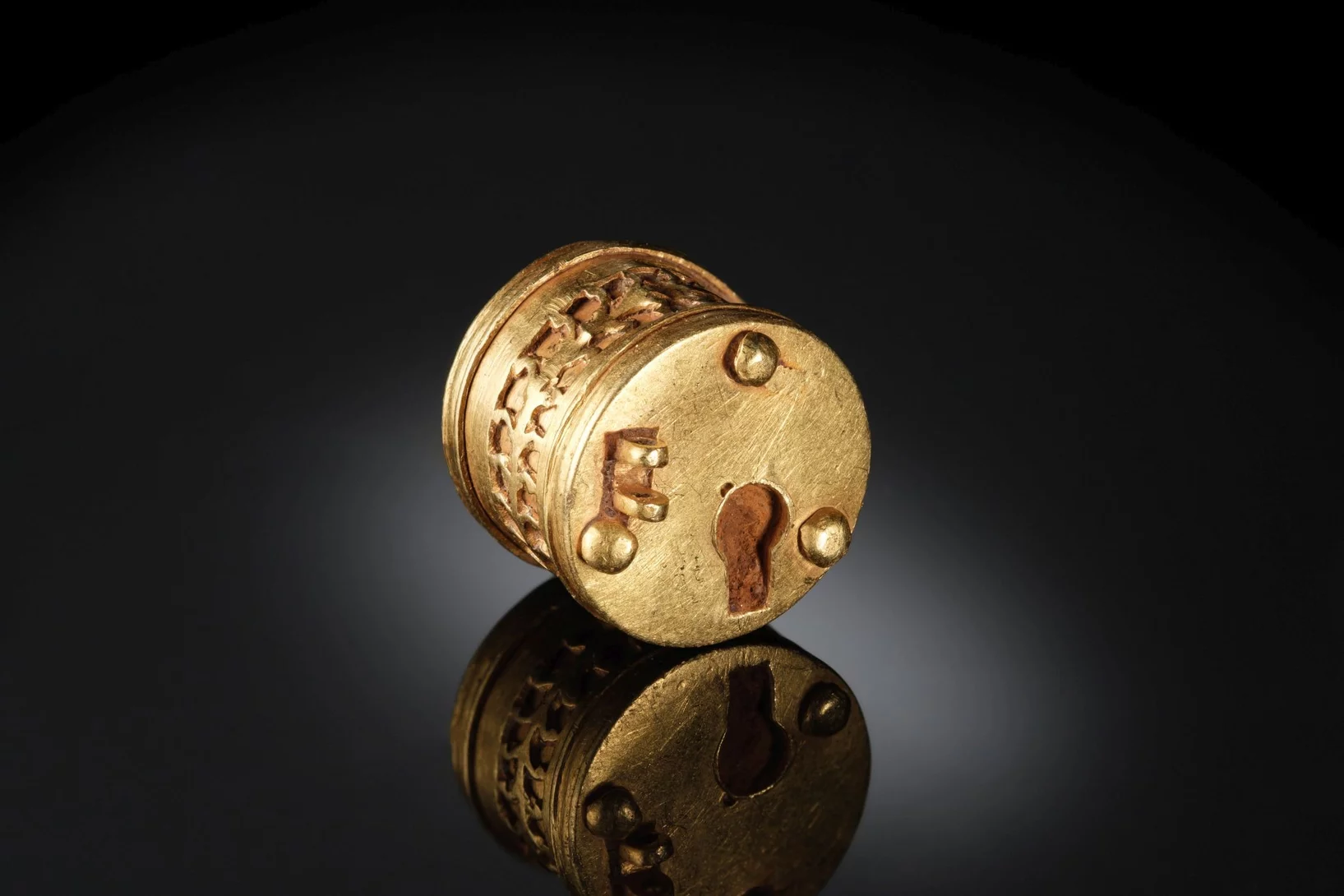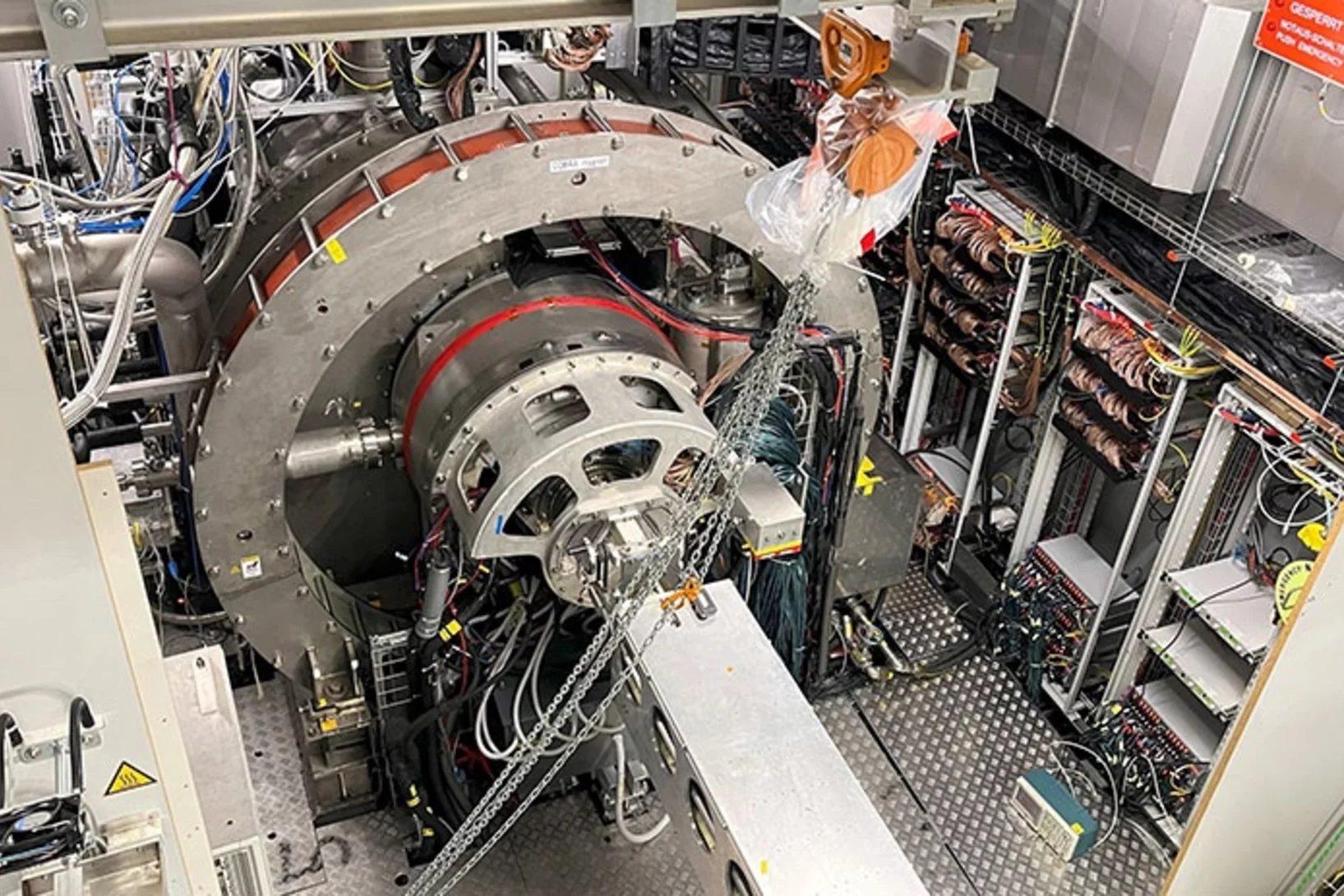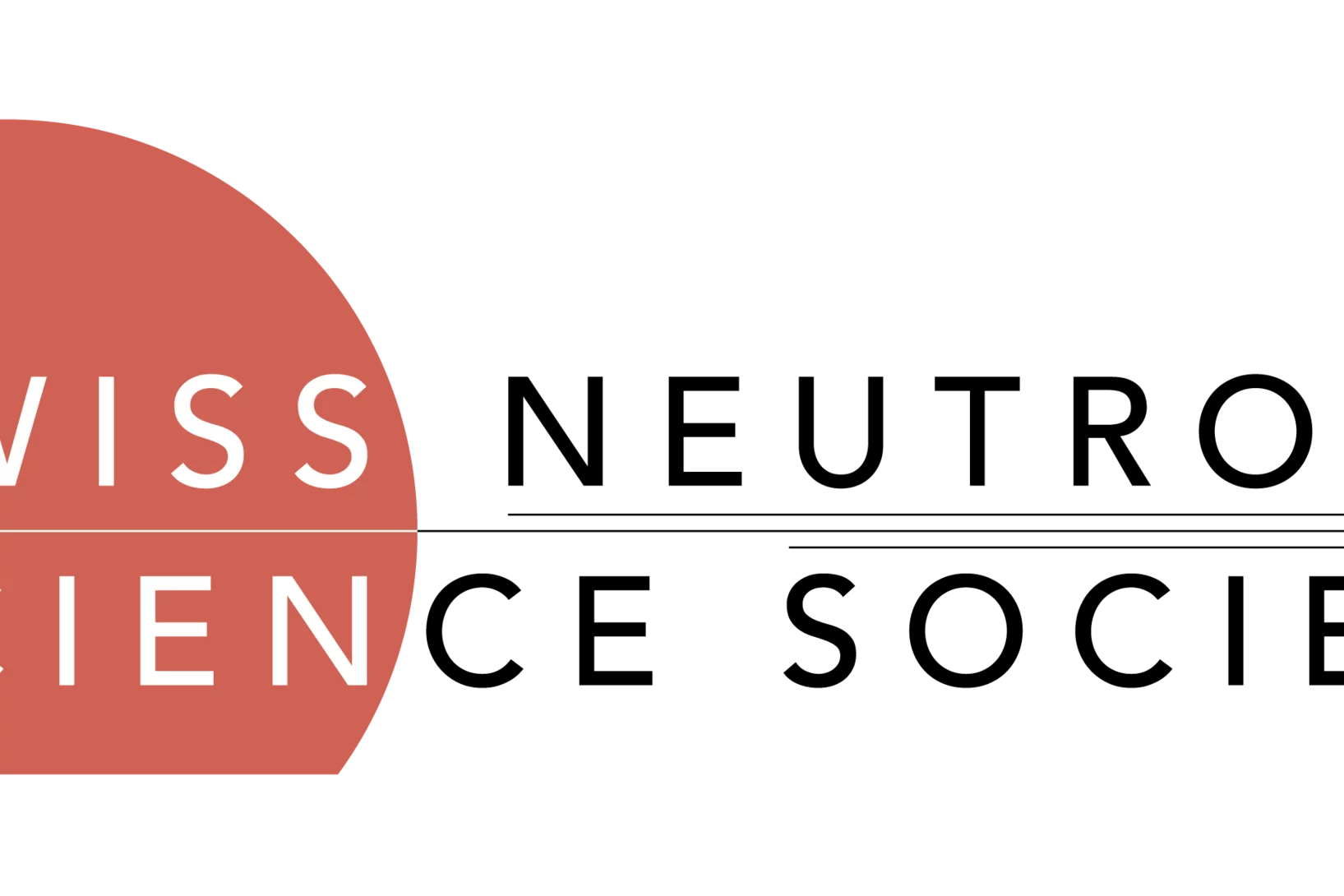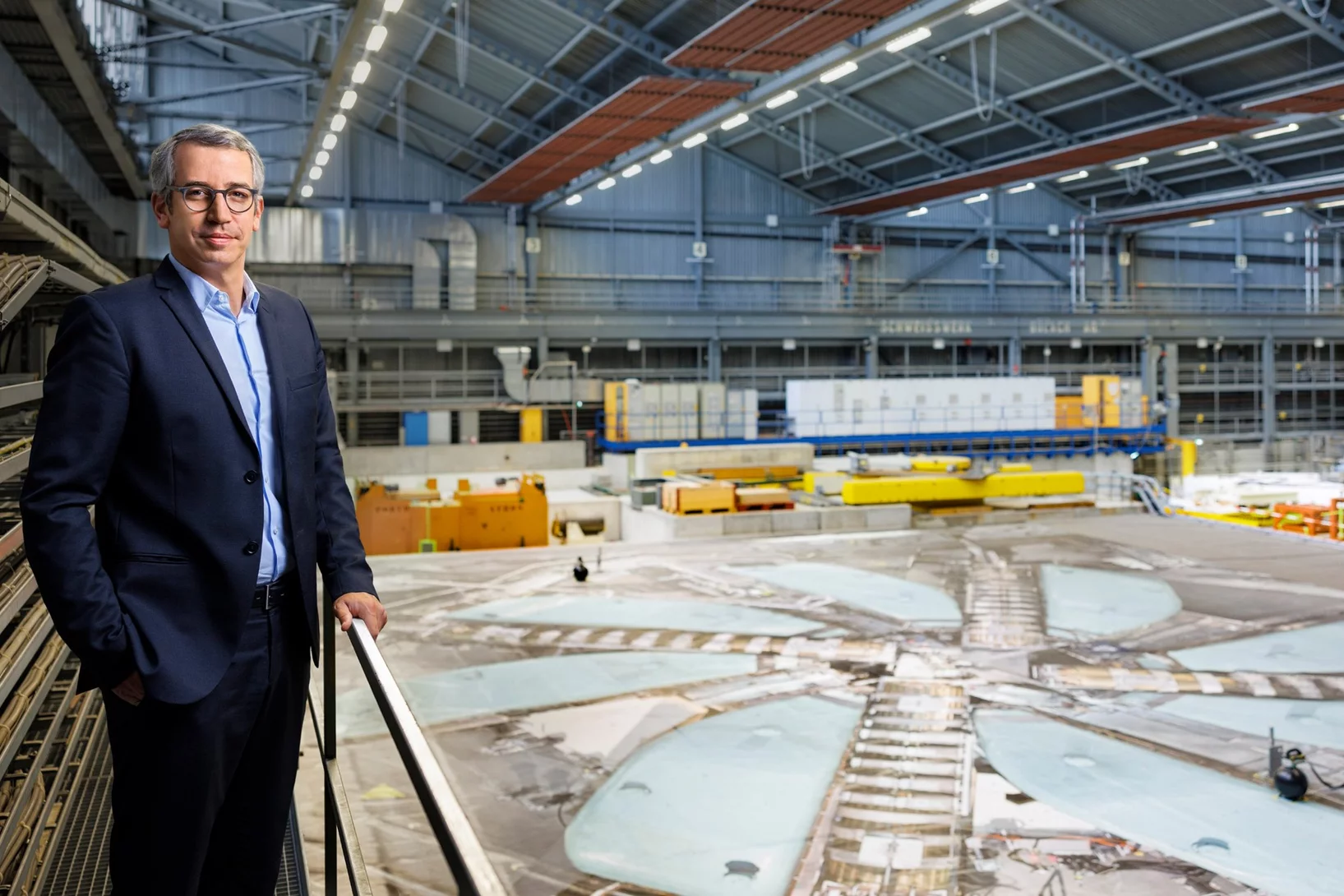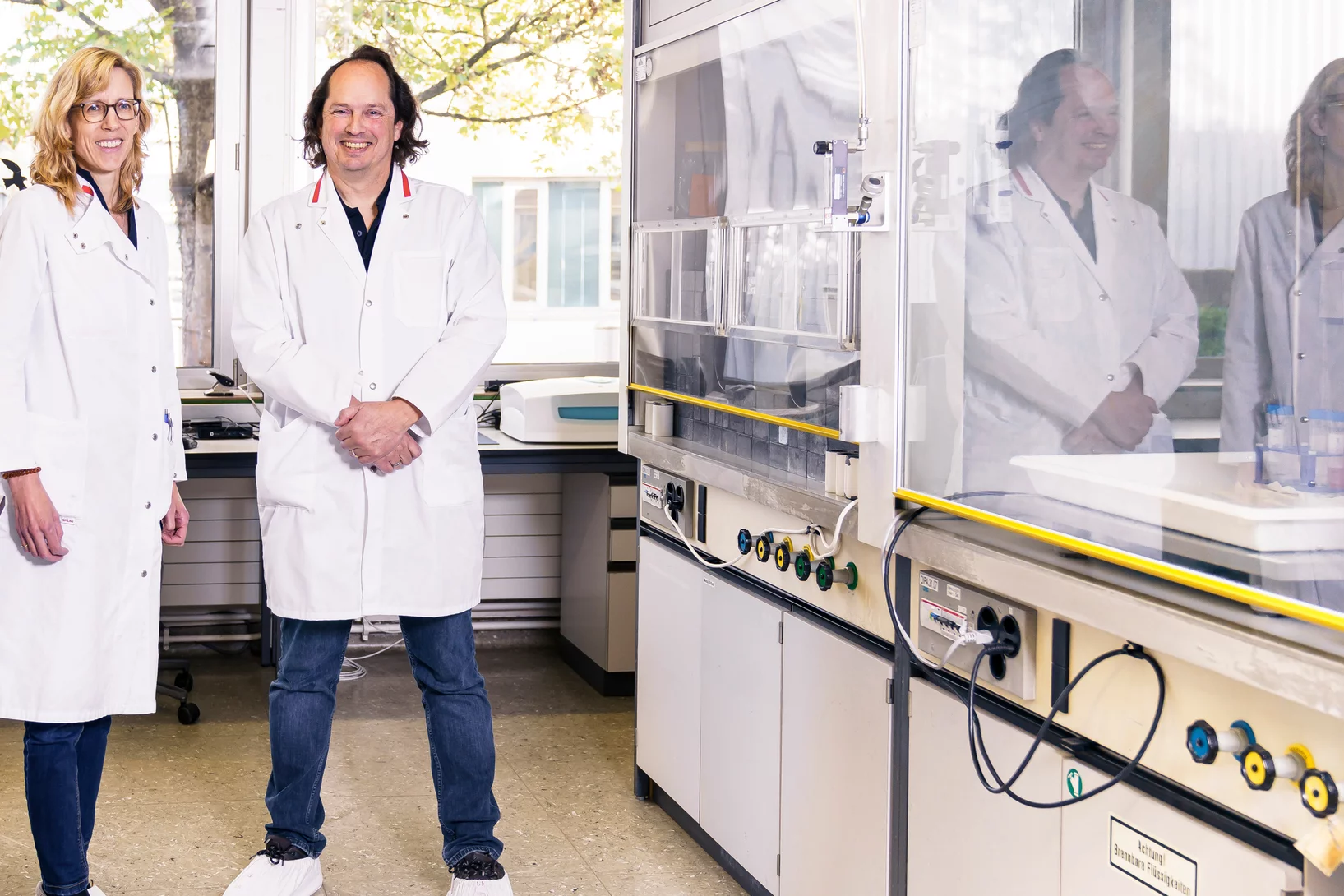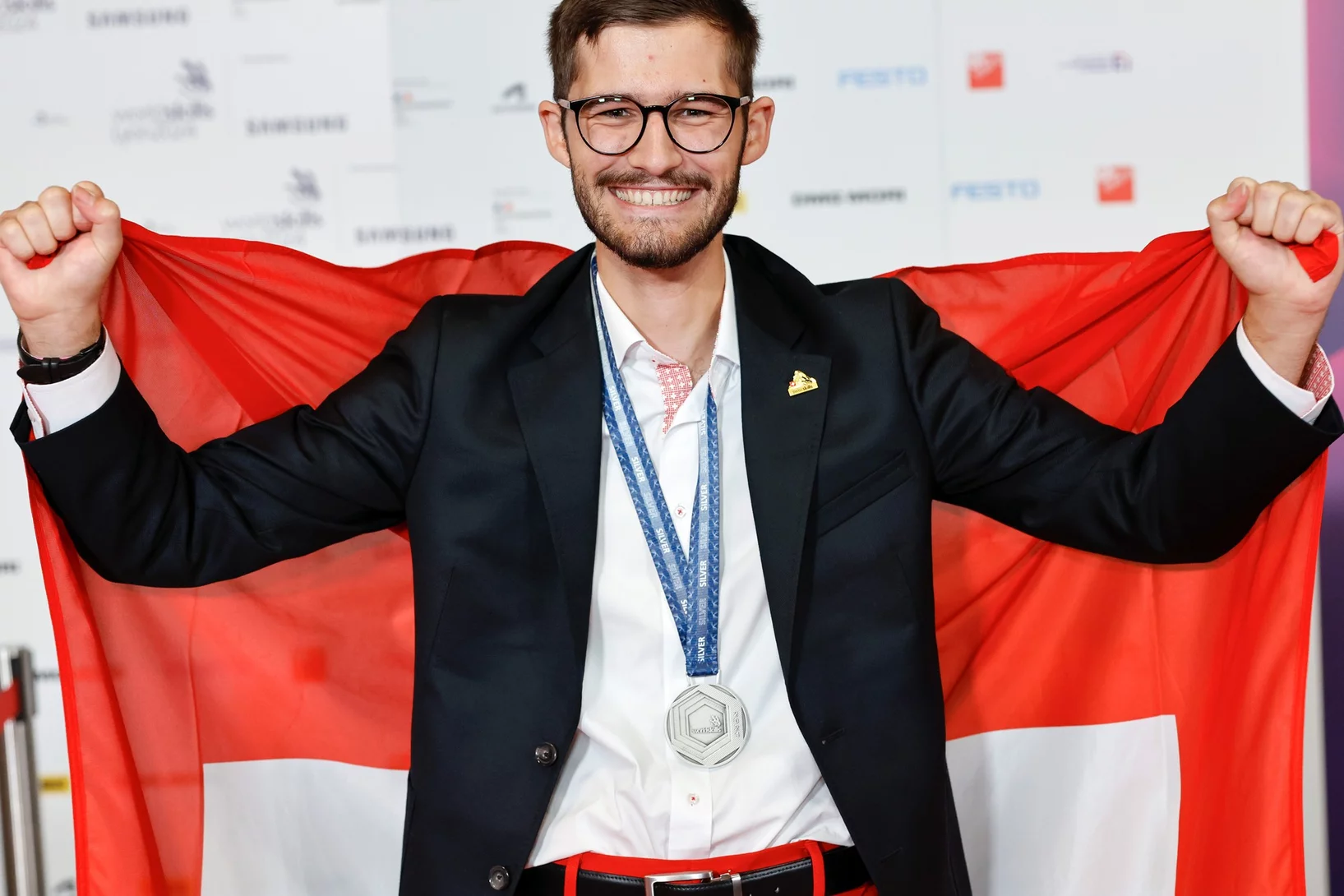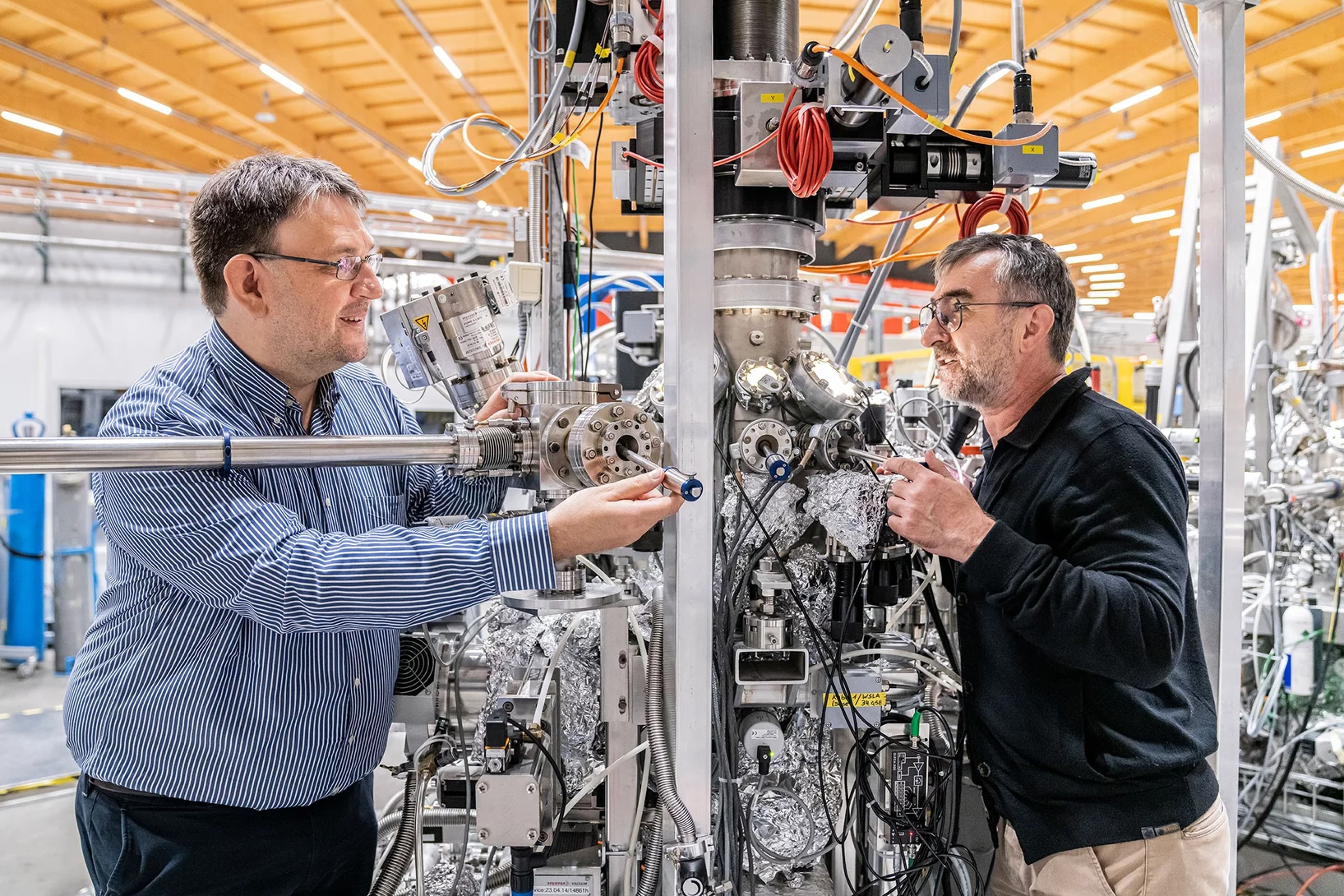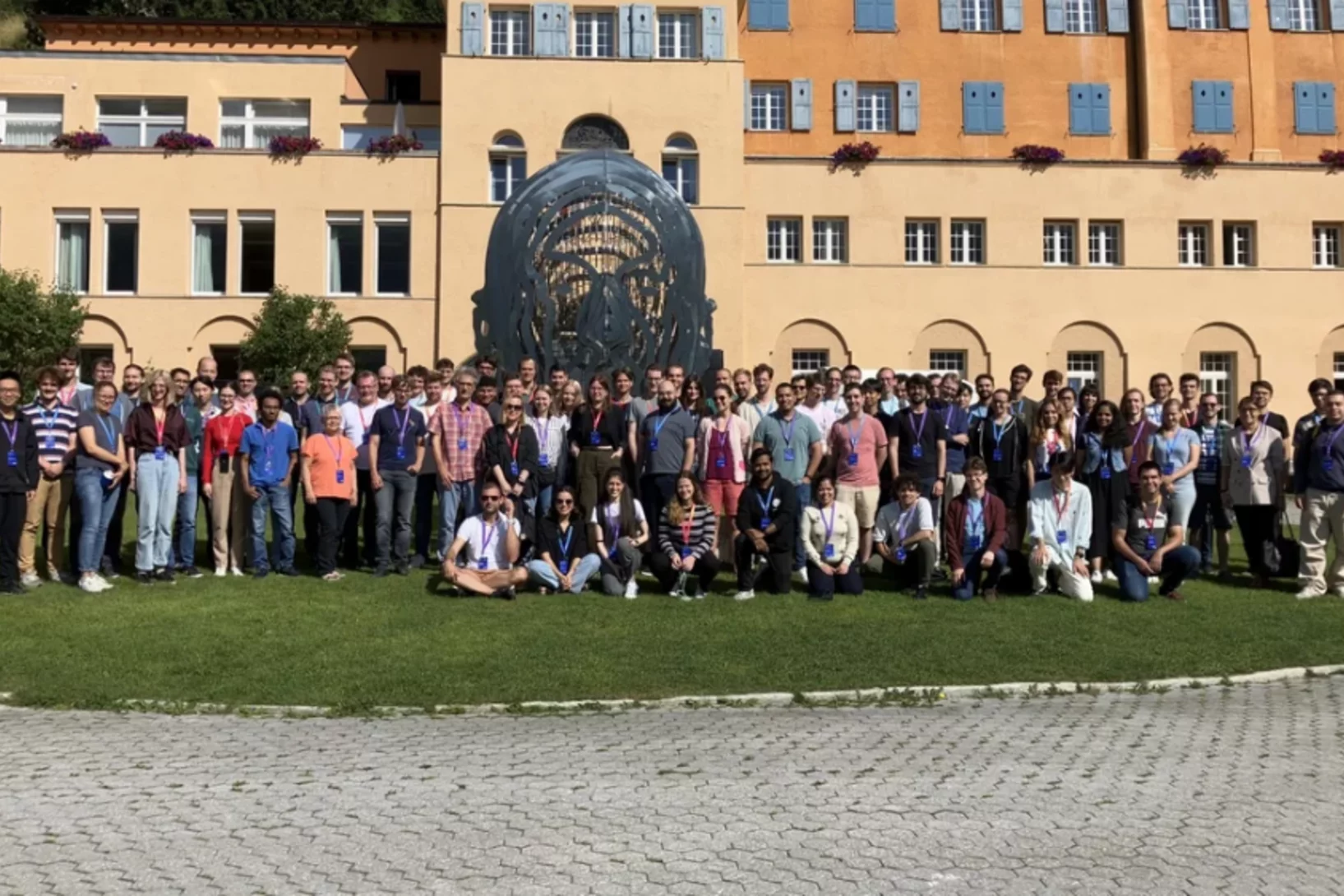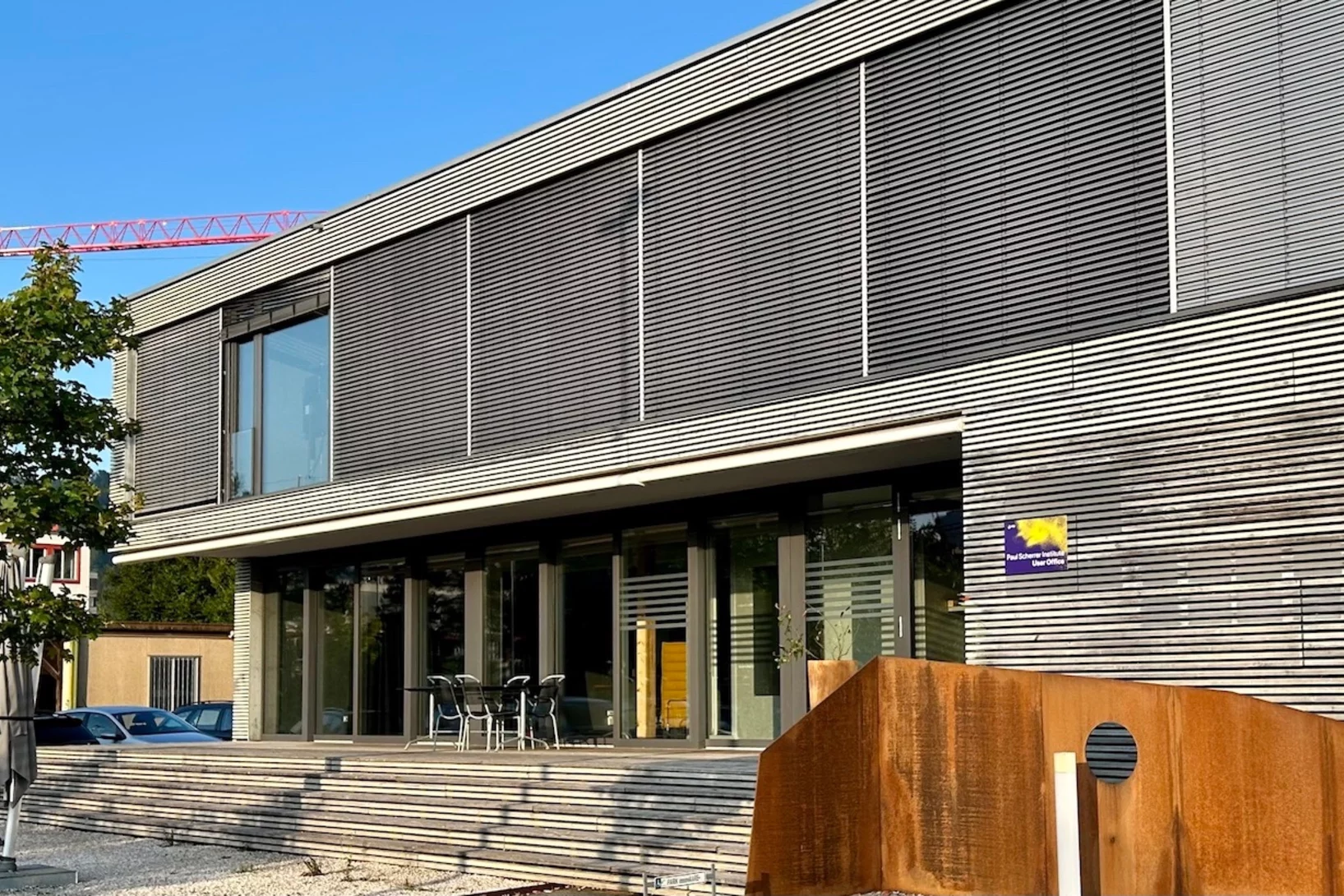Here you find current and previous news from the PSI Center for Neutron and Muon Sciences.
Show filters
Mille modules pour le CERN
Au CERN, près de Genève, de minuscules particules sont projetées les unes contre les autres aux plus hautes énergies afin d’élucider les grandes questions de l’Univers. Les détecteurs qui enregistrent ces collisions ont besoin de mises à niveau régulières. Lea Caminada et son groupe de recherche Physique des hautes énergies jouent un rôle important dans ce domaine au PSI.
Des subsides du Fonds national suisse pour les muons
Le PSI se voit confier un Pôle de recherche national: le projet «Muoniverse» va développer encore davantage la recherche aux lignes de faisceaux de particules élémentaires appelées muons. Et ce à l’installation de faisceaux de muons la plus performante au monde.
«Nous mettons tout en œuvre pour y parvenir»
Le PSI multiplie par 100 l’intensité de ses faisceaux de muons, ouvrant la voie à de toutes nouvelles possibilités pour la physique et la science des matériaux.
Michel Kenzelmann named as New Chair of the PSI Research Committee
Michel Kenzelmann has been named as new chair of the PSI research committee (FoKo). from 1 March 2026 he will succeed Marco Stampanoni who chaired the committee since 2018.
SINQ call for proposals is closed now
The SINQ call I-26 is closed now.
ERC Consolidator Grant for Neutron Lifetime Experiment at PSI’s source for ultracold neutrons
Our collaborator Prof. Dr. Martin Fertl from the Johannes Gutenberg University Mainz (JGU) and the PRISMA+ Cluster of Excellence has been awarded an ERC Consolidator Grant, one of the EU's most highly endowed grants, to support the development of the next-generation neutron lifetime experiment.
Un laser dessine des paysages magnétiques sur mesure
Des scientifiques du PSI ont découvert une méthode étonnamment rapide et bon marché pour modifier localement des matériaux magnétiques.
SμS call for proposals I-26 is closed now
The call for SμS proposals I-26 (deadline 01 December 2025) is closed now.
Dectris Prize: Congratulations to Andrej Maraffio
Congratulations to Andrej Maraffio for winning the Dectris Prize 2025!
Second BRIDGE Workshop in Tokyo
The second BRIDGE workshop, “Bridging Research Innovations in Diverse muon and neutron science by GEneral collaboration between Japan and Switzerland”, took place at the University of Tokyo on October 20-22, 2025
The Charpak-Ritz Prize 2026 is awarded to Laura Heyderman
Since 2016, the Charpak-Ritz Prize has been jointly awarded by the French Physical Society and the Swiss Physical Society to a physicist or a team for outstanding contributions to physics or its advancement.
Uwe Filges appointed new head of LIN Laboratory
Uwe Filges has been appointed new Head of the Laboratory for Neutron and Muon Instrumentation LIN as of 1 November 2025.
Marc Janoschek named as Fellow of the American Physical Society
The American Physical Society has elected Marc Janoschek, physicist, head of the PSI Center for Neutron and Muon Sciences and Professor at the University of Zurich, to Fellowship in the Society.
2025 CHIPP Postdoc Prize for Efrain P. Segarra
The LTP/CNM physicist Efrain P. Segarra has been awarded the 2025 CHIPP Postdoc Prize!
PSI electronics apprentices once again perform very successfully at the SwissSkills Championships 2025
At the biennial SwissSkills Championships for young professionals, which took place in Bern from 17 to 21 September 2025, four of our former and current electronics apprentices demonstrated their exceptionally strong skills with great success in two different competition categories.
PSI2025 Workshop on the ‘Physics of fundamental Symmetries and Interactions’
From September 7-12, 2025, more than 170 participants from 20 countries met for the PSI2025 workshop, the 7th edition in the series.
Retirement of Christof Niedermayer
On 30th July 2025, Christof Niedermayer retired after nearly 40 years working in science and good part of it at the Laboratory for Neutron Scattering & Imaging.
WOPM2025 at PSI - Workshop on optically-pumped magnetometers
From August 6 to 8, the 2025 workshop on 'Optically-Pumped Magnetometers' took place at PSI with a full day of Summer School lectures, followed by scientific sessions attended by 145 researchers from institutions worldwide.
E-MRS 2025 Spring Meeting Young Researcher Award for Mohammadhossein Montazerian
During its recent spring meeting the European Materials Research Society has awarded the E-MRS Young Researcher Award to Mohammadhossein Montazerian from the LMX laboratory in recognition of his "Outstanding contribution to the Symposium L: Solid state batteries - materials, processing and advanced characterization".
Nouveaux jalons en physique nucléaire
Des scientifiques du PSI mesurent le rayon du noyau de l’hélium-3 muonique avec une précision inégalée à ce jour et mettent à l’épreuve les théories de la physique atomique.
Prof. Dr. Marc Janoschek appointed new Head of the PSI Center for Neutron and Muon Sciences (CNM)
Prof. Dr. Marc Janoschek will take over as Head of the PSI Center for Neutron and Muon Sciences (CNM) on 1 June 2025.
Une minuscule serrure en or de l’époque romaine
Grâce aux neutrons, David Mannes du PSI a percé le secret d’un fascinant artefact archéologique.
In Search of New Physics: New Result from the MEG II Collaboration
On the occasion of a special seminar at the Paul Scherrer Institut (PSI) in Switzerland on 23 April 2025 the scientific collaboration of the MEG II experiment presented an important new result in the search for the decay of a positive muon into a positron and a photon. The findings, based on data collected in 2021 and 2022, are detailed in a paper published in 'The European Physical Journal C'.
New Website of the Swiss Neutron Science Society
Please check out the new online presence of the Swiss Neutron Science Society (SNSS)
Décision concernant IMPACT: la mise à niveau de l’installation de recherche du PSI sera réalisée
Le financement des transformations à l’accélérateur de protons du PSI a été avalisé par le Parlement suisse.
IMPACT: pour la société suisse
Pour être à la pointe, au niveau mondial, dans le domaine des muons et de la production de radionucléides médicaux: l'importance de la mise à niveau prévue.
Souder sur une grande scène
Ceux qui grimpent sur ce podium font partie des meilleurs talents professionnels du monde. Melvin Deubelbeiss, électronicien au PSI, a remporté la médaille d’argent aux WorldSkills 2024.
Magnétisme en couches minces: un électron fait la différence
Une étape importante vers des mémoires informatiques novatrices
The Zuoz school’s 26th edition
26th Zuoz Summer School on particle physics took place at the Lyceum Alpinum with close to 100 participants.
New location of PSI User Office
You will find us easily at our new location in building WBBC at the front area of the PSI West parking lot.

